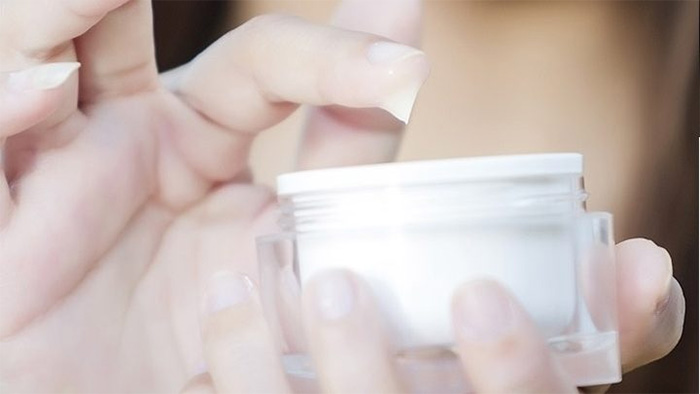Applying moisturizer is the most fundamental step in skincare to nourish, hydrate the skin, and protect it from adverse environmental effects.
Moreover, a good moisturizer can specifically address common skin concerns such as aging, roughness, peeling, and uneven skin tone, restoring a youthful, vibrant, and smooth complexion.
Under the sun’s rays, the skin sweats heavily, loses moisture, and its natural oil layer is quickly stripped away. This leads to increased sebaceous gland activity, making the skin more prone to breakouts or worsening existing acne. Prolonged exposure to air conditioning can also dry out the skin due to moisture loss, accelerating the aging process.

It is advisable to maintain the habit of applying moisturizer twice daily, in the morning and evening.
Therefore, you should hydrate your skin comprehensively to reduce dryness during seasonal changes. It is important to keep the routine of applying moisturizer twice a day, in the morning and evening. If you are concerned about clogged pores or frequently wear masks, you can apply moisturizer once in the evening before bed.
If you notice increased breakouts, it may be due to the moisturizer you are using not being suitable for your skin type or the current weather conditions. Using too much or too little moisturizer can also diminish or negate its hydrating effects. The ideal amount of moisturizer during the summer is about two pea-sized amounts (3-5 ml) for a small face and three pea-sized amounts (5-7 ml) for a larger or square face.
To address this issue, you might consider switching to a different moisturizer. For example, products with a liquid consistency that contain hyaluronic acid or mineral water can effectively hydrate and retain moisture in the skin for hours.
In hot weather conditions, you should avoid oil-based moisturizers, as they can clog pores and create an environment for bacteria to thrive, leading to acne.
In addition to skincare from medicinal herbs, you can utilize natural products to provide vitamins, making your skin healthier.
Note: Moisturizing and sun protection should go hand in hand, serving both skincare and as a protective barrier for the skin. Use sunscreen with an SPF of 30 or higher every day. If your skin is irritated or experiencing significant breakouts, consider consulting a dermatologist for specific advice.
Dr. Do Kim Anh
Department of High-Tech Aesthetic Plastic Surgery, Hanoi Medical University Hospital

















































